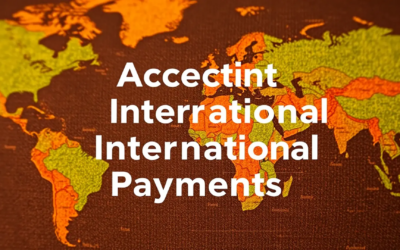Faster payment: how it works, its benefits, and future
In a world where speed and efficiency are becoming increasingly vital, how we handle financial transactions has undergone significant changes. One such development is the advent of faster payments. But what exactly is faster payment, and why does it hold such importance in today’s financial landscape? This blog post will explore the intricacies of faster payments, understanding how they work, their benefits, and why they are essential for modern-day transactions. We will also explore the differences between faster payments and other methods and learn about the banks supporting this service.
What is meant by faster payments?
They refer to a system that allows for the near-instantaneous transfer of funds between banks and financial institutions. Unlike traditional payment methods, which can take days to process, faster payments enable transactions to be completed in seconds or minutes. This system is precious in a digital age with high expectations for quick and seamless transactions. Whether you’re a business owner seeking to improve cash flow or an individual needing to make a swift payment, faster payments offer a convenient and efficient solution.
Understanding faster payment service
The Faster Payments Service (FPS) was introduced in the UK in 2008 as a revolutionary way to transfer funds between banks more rapidly than the traditional BACS (Bankers’ Automated Clearing Services) system. Unlike BACS, which typically takes three days to process, the FPS aims to complete transactions within a few seconds, though in some cases, it may take up to two hours.
This service is not limited to bank transfers; it also includes mobile, online, and telephone payments. FPS’s key feature is its ability to process transactions 24/7, including weekends and bank holidays, making it an indispensable tool for businesses and individuals. The speed and availability of FPS make it a preferred choice for urgent payments, such as settling bills, transferring funds to family members, or paying suppliers promptly.
How does the faster payment system work?
The Faster Payments system is designed to facilitate quick transfers using a more streamlined process than traditional payment methods. When a faster payment is initiated, the request is immediately sent to the payer’s bank, which checks whether sufficient funds are available and whether the transaction meets the necessary security checks.
Once the payment is approved, the funds are transferred to the recipient’s bank almost instantaneously. The recipient’s bank then credits the funds to the recipient’s account, completing the transaction. The entire process is automated and occurs within seconds, though it may take slightly longer if additional security checks are required.
This system is highly efficient due to its reliance on modern technology and real-time processing capabilities. It is supported by a network of banks and financial institutions that have agreed to adhere to the standards set by the Faster Payments Scheme, ensuring that transactions are processed swiftly and securely.
Which banks offer faster payments?
Most major UK banks and financial institutions offer faster payment services to their customers. This includes high-street banks such as Barclays, HSBC, Lloyds, and NatWest, as well as digital banks like Starling Bank and Monzo. These banks have integrated the Faster Payments system into their online, mobile, and telephone banking platforms, allowing customers to send and receive payments quickly and easily.
However, the availability of Faster Payments may vary depending on your account type. For example, some basic bank accounts or savings accounts may not support Faster Payments, or there may be restrictions on the types of transactions that can be made using this service. It is always advisable to check with your bank to confirm whether your account is eligible for Faster Payments and to understand any applicable limitations.
Are faster payments instant?
While Faster Payments are designed to be near-instantaneous, there are instances where a payment might take longer to process. In most cases, payments are completed within seconds, but some transactions may take up to two hours. This delay can occur for several reasons, such as the need for additional security checks, network issues, or the time of day when the payment is made.
For example, suppose a payment is made during a peak period, such as around payday. In that case, it might take slightly longer to process due to the banking system’s higher volume of transactions. Similarly, if a payment is flagged for security reasons, it may be delayed while the bank conducts additional checks to verify its legitimacy.
Despite these potential delays, Faster Payments are still significantly quicker than traditional payment methods, making them a reliable option for urgent transfers. It’s important to note that most delays are rare, and most payments are completed without issue.
What are the benefits of using faster payments?
The benefits of using Faster Payments are numerous, both for individuals and businesses. One of the most significant advantages is the speed at which transactions are completed. For individuals, this means being able to transfer money to friends, family, or businesses in a matter of seconds, providing peace of mind when making time-sensitive payments.
Faster Payments can improve business cash flow by ensuring funds are received almost immediately after a payment. This can be particularly beneficial for small businesses that rely on quick payments to manage their day-to-day operations. Additionally, making instant payments can enhance customer satisfaction, as clients and suppliers appreciate the prompt settlement of invoices.
Another key benefit is the service’s availability 24/7, including weekends and bank holidays. This flexibility ensures that payments can be made at any time, reducing the risk of delays due to bank closures or public holidays. Furthermore, Faster Payments are generally free for personal customers, making it a cost-effective solution for those who need to transfer money quickly.
Are there any limits on faster payments?
While Faster Payments offer many advantages, there are some limits to be aware of. Most banks impose a maximum transaction limit on Faster Payments, which typically ranges from £10,000 to £250,000, depending on the bank and the type of account. For example, personal accounts may have lower limits than business accounts, often used for larger transactions.
It’s also important to note that some banks may have daily or monthly limits on the total amount that can be transferred via Faster Payments. These limits are usually in place to prevent fraud and ensure the system is used responsibly. Suppose you need to make a payment that exceeds your bank’s limit. In that case, you may need to use an alternative payment method, such as CHAPS (Clearing House Automated Payment System), designed for higher-value transfers but may come with additional fees.
Is there a fee for using faster payments?
In most cases, Faster Payments are free of charge for personal customers, making them an attractive option for those who need to transfer money quickly. However, some banks may charge a fee for certain Faster Payments, particularly for business accounts or payments that exceed a specific limit. You must check with your bank to understand any fees that may apply to your account.
For businesses, the cost of using Faster Payments can vary depending on the bank and the type of account. Some banks may charge a small fee for each Faster Payment transaction, while others may include it in a package of services offered to business customers. Despite the potential for fees, Faster Payments are often more cost-effective than other payment methods, especially considering their speed and convenience.
Are faster payments secure?
Security is a top priority for the Faster Payments Service, and several measures are in place to protect users from fraud and unauthorised transactions. All Faster Payments transactions are subject to strict security checks, including encryption and secure channels to transmit payment information.
Additionally, banks may implement security protocols, such as two-factor authentication (2FA) or biometric verification, to further safeguard transactions. These measures help to ensure that only authorised individuals can initiate and approve Faster Payments.
It’s also crucial for users to take precautions when making Faster Payments, such as double-checking the recipient’s details and being cautious of phishing scams. By following best practices and being vigilant, users can enjoy the benefits of Faster Payments while minimising the risk of fraud.
How do faster payments compare to other payment methods?
Faster Payments offer several advantages over traditional payment methods, such as BACS, CHAPS, and SWIFT. BACS, for example, is commonly used for direct debits and payroll payments but can take up to three days to process. On the other hand, CHAPS is designed for high-value transfers and offers same-day processing, but it typically comes with higher fees.
SWIFT is used for international payments and can take several days to process, depending on the countries involved and the banks used. In contrast, Faster Payments are generally processed within seconds and available 24/7, making them ideal for domestic and international transactions (within participating countries).
When choosing a payment method, consider factors such as speed, cost, and the specific needs of the transaction. Faster Payments are often the preferred choice for individuals and businesses that value quick and efficient transfers.
What does the future hold for faster payments?
The future of Faster Payments looks promising, with ongoing developments aimed at improving the service and expanding its reach. One area of focus is the integration of Faster Payments with other payment systems, such as Open Banking and mobile payment platforms, to create a more seamless and unified payment experience.
Additionally, efforts are being made to increase the transaction limits for Faster Payments, allowing larger payments to be processed quickly and securely. This further enhances the appeal of Faster Payments for businesses and individuals alike.
Regulatory changes and technological advancements are also expected to shape the future of Faster Payments. As the financial landscape continues to evolve, Faster Payments will likely remain a key component of the UK’s payment infrastructure, offering users speed, convenience, and security.
FAQs
What is the Faster Payment method?
The Faster Payment method is a system that allows for near-instantaneous transfer of funds between banks and financial institutions in the UK. It was introduced to provide a quicker alternative to traditional payment methods like BACS, enabling transactions to be completed within seconds or minutes. Faster Payments can be made through various channels, including online banking, mobile apps, and telephone banking, offering a convenient way to transfer money 24/7.
How long do Faster Payments take?
Faster Payments are designed to be processed almost immediately. In most cases, the transaction is completed within seconds, although it can take up to two hours if additional security checks are required or during peak times. This speed is one of the key advantages of using Faster Payments compared to other methods that may take several days to process.
What is the difference between Faster Payments and BACS?
The primary difference between Faster Payments and BACS lies in the processing time. Faster Payments are typically processed within seconds or minutes, making them ideal for urgent transactions. In contrast, BACS payments usually take three working days to process. BACS is commonly used for payroll, direct debits, and other scheduled payments, whereas Faster Payments are preferred for instant transfers.
Which banks are part of Faster Payments?
Most major UK banks and financial institutions are part of the Faster Payments Scheme. This includes well-known names like Barclays, HSBC, Lloyds, NatWest, and digital banks such as Starling Bank and Monzo. These banks offer Faster Payments through their online, mobile, and telephone banking services. It’s important to check with your bank to confirm that your account supports Faster Payments and to understand any specific conditions that may apply.
How safe is Faster Payment?
Faster Payments are highly secure, with multiple layers of protection in place to safeguard transactions. Banks use encryption, secure channels, and other advanced security measures to transfer your funds safely. Additionally, users are encouraged to take their own precautions, such as verifying recipient details and being cautious of phishing scams. By combining these security measures, Faster Payments offers a reliable and secure way to transfer money quickly.







